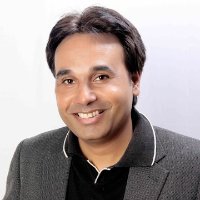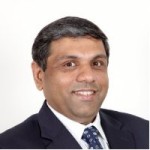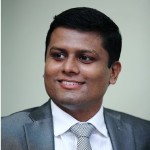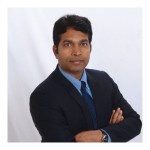Avnish Sharma Founded SysCraft in 2001. He started right out of college and the idea was to provide complete solutions under one roof. Avnish found that everyone was talking about Y2K in IT industry but there was no real business solutions provided to the local Indian market and it was filled with legacy solutions developed on technologies such as FoxPro, Clipper etc. Avnish tied up with multiple hardware providers and began reselling popular computers and were catering to a number of services from Hardware Sales to Networking and Maintenance a long with serving the custom software development needs for the same client. The margins, however for the Hardware business was not that great. To stay afloat, he continued being in the business till 2007 and acquired a good set of customer base. In 2008, he shifted to solely developing software solutions for the SMEs. From 2009, he converted it into a private limited company and the focus shifted to Internet Applications (Web and Cloud).
Since he began reselling computers, he got his first sale on the 3rd day of starting his business. He established a relationship with his customers using the established PC brands and began pitching in software solutions. His clients gave him the opportunity because they liked his service. He began providing a number of IT services under one roof keeping his client satisfaction very high. He sold a combination of Hardware and Software to his clients. At some point of time, he realized that the client was satisfied with the software he developed for them, but had issues with the Hardware Maintenance. Additionally, the service requests were also very high on Hardware eating into the margins whereas the software business on the other hand was relatively very profitable. He gave up the hardware business and began focussing on software & web development only. He also opened up branches in Mumbai and in Noida in addition to Indore. They began developing mini ERP, Custom Apps and websites for his clients. He then launched three products in 2014 – POS for restaurants and hospitality Saleskit, Productivity monitoring (for IT companies with staffing of less than 500) and ConText CMS (a CMS for any need). The entire requirements for the product came out of the earlier client project implementations and the prior discussions with his prospects
On the Sales outreach, he relied on Cold Calling in the initial days and fixed up appointments to go and meet his prospects face to face. He had a sales team of two people in the initial days. They were more on the B2B segment and he kept a target of one custom software development order per week for the three people and consistently achieved it. The client list grew to a size of around 250 people. Simultaneously the software product team also grew to around 100 engineers. The three products solved critical problems for their customers and hence selling it was relatively easier. The Monitoring system product solves the project monitoring and project execution by installing on the developer machine and maintaining the tasks. The software on the other hand generates reports on the cloud for the business owners. They scheduled presentations on a one on one basis. They gave a one month demo for the users to try it and the demos and trials were successful. The first client connected them with the second one and the second gave third and so on. The first few customers came easily through references because of the power of the product and client satisfaction. The target sets of companies were the ones that had less than 500 employees as they were the ones who were keen on monitoring the employee performance on a constant basis.
They have now adopted emailers and digital marketing to reach out to prospective customers and fix appointments. They have also diversified into the wearable devices and developed applications for Google Glass. They take the latest technologies as a way to differentiate themselves and penetrate the market. They were an open source lab and concentrated themselves as their core competency. They also do a lot of cross selling , upselling and reference selling which helped them to gain the market.
Avnish’s Advice – Technology will not remain the same and one has to be open to change. The product might not be accepted by the market and will take a long time to penetrate. Develop a product that allows a part of the product that can be accepted by the market and then make the customer to adopt the rest of the solution.
Syscraft has grown to a size of 100 plus technocrats and has 250 plus customers across 26 countries. They have been awarded Deloitte top 50 fastest growing IT companies in India and also been awarded as the top 500 fastest growing technology companies in Asia pacific. Their work has been listed on Forbes as well. They are still bootstrapped.






